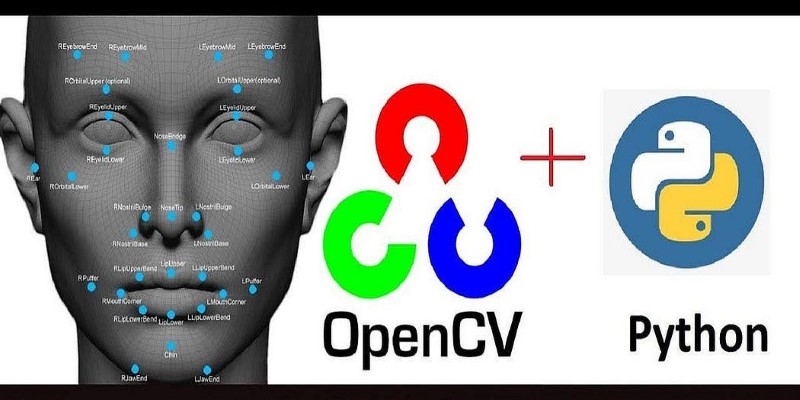Advertisement
The author's release of an artificial intelligence agent platform marks a significant turning point in the development of corporate solutions, as companies increasingly rely on technology to drive efficiency and growth. This change aligns with the evolution of artificial intelligence, machine learning, and automation, which are transforming business operations, consumer interactions, and data-driven decision-making. Originally well-known for its innovative corporate writing helper solutions, Writer, a company entering the AI agent market, promises to revolutionize how companies build and use unique, intelligent agents tailored for specific activities.

The growing demand for artificial intelligence-driven automation within companies stems from a desire to streamline processes, improve customer satisfaction, and lower costs. From internal systems that enable staff members to generate documentation or analyze data to customer service bots handling hundreds of questions daily, artificial intelligence agents have become increasingly crucial within systems. Reliable, enterprise-grade AI technology is more in demand than ever as more businesses apply digital transformation. By allowing companies to quickly construct sophisticated AI agents without any knowledge of coding or machine learning, Writer's new platform answers this need.
Furthermore, conventional artificial intelligence solutions may not offer the depth and precision that businesses require. Still, Writer's AI agent platform provides more scalability and customization. Companies may disclose confidential information to staff members and modify their behavior to comply with specific policies or regulatory requirements. In fields such as law, finance, and healthcare, where general solutions often fall short, this flexibility is crucial. It is a good investment, as Writer's technique closes the gap between off-the-shelf artificial intelligence technology and customized creation for forward-looking companies.
Based primarily on its Palmyra language model, Writer's AI agent platform is a robust large language model (LLM) trained on enterprise-grade data, with security and accuracy tuned. Palmyra has been built to operate within contextual constraints and provide consistent results, unlike general-purpose models that may cause hallucinations or produce off-target information. This emphasis on contextual relevance ensures that companies using Writer's platform may depend on the outputs of their artificial intelligence agents, whether they are generating emails, policy papers, or data summaries.
The platform itself is efficiently manufactured with consideration for simplicity of usage. Users develop agents by defining objectives, entering data, and building operational limitations. Not just data scientists or engineers but staff members from other departments may also utilize the interface, as it facilitates natural language exchanges. The Writer also offers sophisticated, customizable solutions for companies with more complex needs, including API access, integration with other technologies, and comprehensive analytics for agent performance. This tie-red approach to functionality ensures that the platform remains accessible, even in complex usage situations.
Already, businesses in numerous sectors are starting to use Writer's AI agent platform in their operations. One primary insurance business utilizes the platform, for example, to automatically handle claims, thereby drastically reducing turnaround time and human error. Reading over turned-in papers and extracting pertinent data, the artificial intelligence agents generate reports for human review. Faster responses help increase operational efficiency and customer experience.
Writer's AI bots are being assigned by e-commerce firms to manage consumer inquiries, modify product descriptions, and tailor marketing materials. These tools may monitor buying patterns, divide consumers, and provide mass-based tailored messages. Consequently, conversion rates have been significantly increased, and the consumer base is more engaged. The platform of authors guarantees a consistent brand voice and compliance everywhere, thereby allowing for the adaptability to build such experiences.
The focus on customizing and business compliance of Writer's AI agent platform distinguishes it. The Writer allowed companies to develop agents that completely fit their company's rules, tone, and data governance needs rather than relying on generic AI solutions with limited customization capabilities. This is especially important in managed businesses where data security and accuracy are non-negotiable. Risk-averse companies utilize the Writer's platform because it offers built-in solutions for audit trails, role-based access restrictions, and secure data processing.
Customization also has a significant impact on the user experience. Companies may create agent personalities, language policies, and operational guidelines that reflect their company culture and practices. Companies can ensure that their AI agents behave like actual team members, whether they are professional documentation assistants or cheerful customer care bots. Together with strong compliance tools, this level of customization gives Writer a competitive edge in the crowded AI solutions market.
The ease with which any business technology interfaces with current systems largely determines its success. Built with this in mind, Writer's AI agent platform presents interfaces with well-known business platforms, including Slack, Salesforce, Microsoft Teams, and many CRM and ERP systems. Through data from multiple sources and intelligent behavior, this ensures that AI agents can operate as part of a larger ecosystem.
The platform offers additional API-based extensions, enabling users to create custom processes or integrate Writer agents with their existing systems. This open ecosystem strategy fosters creativity and enables companies to enhance their AI capabilities progressively. Whether it's automating internal processes or enhancing customer-facing apps, Writer's integration tools ensure that artificial intelligence agents become a seamless part of everyday operations rather than a one-off novelty.
The Writer's introduction of the AI agent platform marks not just a commercial release but also a purposeful attempt to redefine business artificial intelligence. The firm envisions a day when artificial intelligence agents permeate all facets of business operations, not just in tech-savvy organizations but also in conventional sectors that have yet to utilize AI fully. Reducing the entrance barrier allows Writer to enable a greater variety of companies to explore and grow their AI projects.
Looking forward, the Writer intends to stay ahead of artificial intelligence development and widen the platform even further by including user comments. This means giving Palmyra more capability, improving agent reasoning and decision-making, and offering new tools for governance and cooperation. As businesses increasingly depend on intelligent systems, Writer is becoming a long-term partner in the AI journey, devoted to providing tools that are not only strong but also ethical, safe, and compatible with corporate values.

The release of Writer's AI agent platform marks a distinct path in corporate automation. Combining simplicity of use, amazing customization, strong compliance, and rigorous language modeling, the platform enables organizations to implement a practical and scalable strategy for utilizing artificial intelligence across multiple operations. From internal processes to customer service, Writer's AI agents are already showing their worth by enhancing user experiences, increasing efficiency, and sharpening decision-making.
The Writer's proactive approach to production ensures that it remains at the forefront of corporate solutions as the AI landscape evolves. The writer is not just increasing output but also changing how companies see technology by democratizing access to intelligent agents and integrating them into daily business operations. In a society shaped by intelligent systems, Writer's platform is likely to be a pillar of the current corporate tech stack.
Advertisement

Ready to make computers see like humans? Learn how to get started with OpenCV—install it, process images, apply filters, and build a real foundation in computer vision with just Python

Learn how to compare two regression models with statistical significance for accuracy, reliability, and better decision-making

Learn the top 5 AI change management strategies and practical checklists to guide your enterprise transformation in 2025.

How LLMs and BERT handle language tasks like sentiment analysis, content generation, and question answering. Learn where each model fits in modern language model applications

Achieve lightning-fast SetFit Inference on Intel Xeon processors with Hugging Face Optimum Intel. Discover how to reduce latency, optimize performance, and streamline deployment without compromising model accuracy

How AI is changing the future of work, who controls its growth, and the hidden role venture capital plays in shaping its impact across industries

IBM showcased its agentic AI at RSAC 2025, introducing a new approach to autonomous security operations. Learn how this technology enables faster response and smarter defense

Accelerate AI with AWS GenAI tools offering scalable image creation and model training using Bedrock and SageMaker features

Discover the best Artificial Intelligence movies that explore emotion, identity, and the blurred line between humans and machines. From “Her” to “The Matrix,” these classics show how AI in cinema has shaped the way we think about technology and humanity

How does an AI assistant move from novelty to necessity? OpenAI’s latest ChatGPT update integrates directly with Microsoft 365 and Google Workspace—reshaping how real work happens across teams

How MPT-7B and MPT-30B from MosaicML are pushing the boundaries of open-source LLM technology. Learn about their architecture, use cases, and why these models are setting a new standard for accessible AI

Is the future of U.S. manufacturing shifting back home? Siemens thinks so. With a $190M hub in Fort Worth, the company is betting big on AI, automation, and domestic production